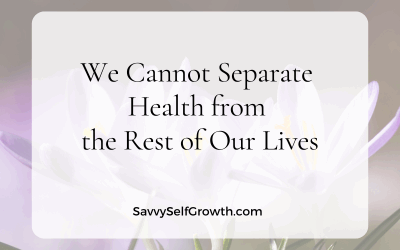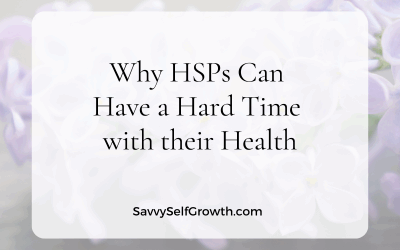As a coach for introverts and sensitive people, I’m guessing that if you are one, the “super-hero super-fast” picture above might not appeal to you. Introverts are more inclined to go for slow, steady, careful action. Having to show up as superheroes often fill them with dread.
Still – where it comes to wanting results for the effort we put into self-development, even us introverts can be tempted.
I have had several clients over the years who have encountered internal pressure to achieve fast results. And for transparency and clarity, I have been there too and have so much compassion. It goes like this:
A pattern or problem shows up. It’s been brewing for many, many years. A lifetime even. Then, we finally realise we’ll need to get help to change it, because it’s not changing by itself. So, we get help and start working and teasing through the layers of what caused the problem.
Then we start getting glimpses of how we want things to be instead, and we feel impatient to get there… Or, we still feel so mired and caught up in the problem. It seems like there hasn’t been enough progress yet…. And we start feeling impatient and anxious. Desperate even.
Especially when it involves money….
This can happen especially if the original problem influences our ability to earn an income and provide money security in the world. Huge pressure can result because “I need to start earning an income NOW!”
It’s happened to me, this impatience, and I remember almost blaming the practitioner I was working with. An internal feeling of “This is not happening fast enough. I should have been further along by now. I’m burning money working with you and I’m not making more yet. Something is wrong here…. Maybe you don’t really know how to help me?”
And as soon as that thought starts, a cascade of other icky things can happen. None of them feel very good or are very useful to us.
More feelings and blame can arise, we feel demotivated, perhaps a bit like a failure for not “being there yet” and a bit annoyed with ourselves or life. Maybe we picked the wrong practitioner or counselor. Maybe someone else has the magic pill that will get us out of this fast, so we can earn money now [insert your own desire here]?
Have you been there?
In my experience, working with clients, and counting my personal experience, adding that pressure to make progress NOW and see the results FAST, adds blame, judgment, fear, doubt and criticism to the mix. Of ourselves AND the person who is doing their level best to help us. That adds to the complexity of what we’re trying to work on to change.
Sadly, now there’s an extra layer to get through.
At the same time, these feelings are completely normal. Of course we want to be “rid of” our problem, this thing that has caused us pain, fear, sadness, worry, and lying awake at night. Life would be so much nicer if we were free of this awful problem.
It’s normal to get impatient and might even want to blame someone for progress that’s not fast enough. Yet I have found that it’s not entirely helpful or supportive of our change process to stay in that impatience and blame.
Here are a few thoughts that could help
1. We need to take full responsibility – vs blaming
This might be the hardest one to face.
It’s no one’s fault that we are where we are. It’s not your fault, it’s not your coach’s fault, it’s not your parents’ fault. Up to this point, everyone (including you, your coach, your parents) has been doing the best they could. If anyone could do better with what they had, they would. I know, this can feel icky and invalidating when we’ve been hurt very deeply.
I’m not trying to “make okay” what anyone did, or let anyone off the hook. Some actions are atrocious and will never be okay. Yet, if we hold on to blame, we will never be free to move on. There is much more to say on this, and the topic for a whole other post.
For now, it’s no one’s fault, yet – here we are with a problem to solve… something needs to change.
It’s our responsibility to work through all the bits that caused it if we want to change the pattern or problem. It’s no-one else’s responsibility. Our coach, therapist, counselor, parent [whoever] cannot “make” change happen for us.
They can do their very best with the tools they have available, with their knowledge, love, attention, validation, kindness, wisdom to facilitate change…. And still, they absolutely cannot make change happen for us.
If it’s not happening as fast as we want it to – it’s not their fault. They’re not making us change slower than we want – because in the first place, they can’t make us change.
Usually by the time we go to a professional, our problem has been around for a while. Perhaps even in many different forms and iterations. There are numerous layers to sift through, numerous “legs” and complex roots to work through.
Remember that change is in our own hands
Again – this does not mean we are “to blame” if we’re not changing fast. It simply means that no-one else can make it happen any faster than it’s already happening, and the problem might be a bit more complex than we originally thought.
Blaming yourself or someone else for slow progress is counter-productive.
When we blame someone else, we put the control outside of ourselves, saying “I’m a victim here, I can do nothing to change this.” And in that moment, we give away our ability to change and progress.
When we blame ourselves, we create an internal environment that is not conducive to growth.
When human beings face change (even towards something good), the nervous system gets agitated. Especially if you’re an introvert or HSP. Things start feeling “different” and the nervous system is not sure yet whether this is for the better or not…. It’s known a certain “normal” for a long time, even though it became a problem for us. If we start fiddling with that “normal”, our nervous system feels a bit uncertain and goes on alert.
Adding self-blame to that mix, only puts it on higher alert (blame feels unsafe, doesn’t it?) and I can almost guarantee we’ll stay stuck with blame added to the complexity.
Now we know what not to do. What do we do then, to help the change process when we feel impatient?
2. A few good questions to ponder
✦ Where AM I making progress, even in minute ways?
✦ How can I relax into the progress that I am making?
✦ What little things am I noticing that I’m doing differently now than before?
✦ How are my thoughts different than before?
It is worth getting a Journal for any change journey, and writing in it every day, even one paragraph. As we go through change, it will reflect in our thoughts and how we respond to things that happen during our days… and if we write those down, it’s easier to notice the progress when we can go back and read it.
3. Small action steps
 Add small action steps towards a clear goal, that feel manageable and do-able. Break it down into the smallest thing you can think of, so it starts feeling familiar and you can think “oh yes, I’ve done that before.” This is so we don’t send the nervous system into shock, aversion or refusal (resistance).
Add small action steps towards a clear goal, that feel manageable and do-able. Break it down into the smallest thing you can think of, so it starts feeling familiar and you can think “oh yes, I’ve done that before.” This is so we don’t send the nervous system into shock, aversion or refusal (resistance).
4. Celebrate the progress
As we make small bits of progress with tiny action steps, it’s important to celebrate our wins.
5. Self-Talk
Learn to give yourself kind self-talk. With every bit of progress, tell yourself “Well done, that’s wonderful!” If you make a mistake or slip back, tell yourself “Okay that’ wasn’t the best thing, and now I know it, I can do something better.” If you catch yourself saying things like “How could you be so stupid!”, follow it up with “Ah, okay, wait…. delete that thought. I made a mistake. I’m human, and I’m learning. Now, l can do it differently.”
One of the best books on Self-Talk is Shad Helmstetter’s What to Say when you Talk to Yourself.
6. Release the emotional pressure
Release the pressure to make fast progress with EFT or Sedona Method. The basic thing behind wanting fast progress, is because we want to control the outcome. We think we know what’s best for us, and we have a need to control things to work out the way we think it should. Can you let go, even a little bit, of wanting to control the outcome?
7. Release the physical pressure
If the pressure to change fast is because you need physical needs met, like earn money to pay bills or sustain yourself, we sometimes need to get wise and get a temporary second or part-time job.
I’ve seen and experienced it…. We pay for therapy or help, hoping it’s going to “cure” us in 4 weeks so we can start earning a bigger income soon.
Money pressure is one of the most unpleasant, scary and awful to experience. Please don’t let the need to earn get in the way of going through a proper growth process.
The change process takes as long as it takes. No-one knows the complexity of what’s underneath our challenges. No-one, not even the best therapist in the world, can tell you upfront how long it’s going to take to solve. It might be lightning fast (2 sessions) and it might be a bit slower (6-8 sessions) and it might be lengthy (12-40 sessions).
It’s important to have enough resources available to let the change-process run its course. Putting pressure on yourself or your therapist to “go faster” because your money is running out, is not going to make it happen any faster. It’s going to slow it down, as described above.
Find creative ways to earn extra money so you can sustain yourself for this important process. It’s your life we’re talking about here.
Final Thoughts
Some of this might be hard to take in. We live in a society where we expect instant results. We’re used to people responding to our messages after hours…. Why not count on that same “instant expectation” for our big changes?
Our brain and nervous system, I’ve heard, is the most complex thing on earth. That’s why.
Making instant coffee, heating up something in the microwave, or getting an instant response on FB Messenger or WhatsApp doesn’t quite involve the same complexity.
✨✨✨
Give yourself time to change. It took a while to build up the problem. And along the way, be kind with yourself.
✨✨✨




